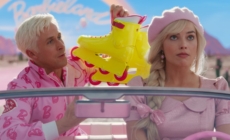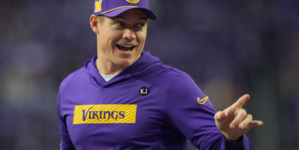-
X CEO Linda Yaccarino Says She Is Leaving Elon Musk’s Platform - 10 mins ago
-
$1 Billion Washington, DC, Rail Bridge Project Moves Forward - 39 mins ago
-
Fireworks warehouse explosion: Authorities search home of CEO - 48 mins ago
-
Israel Launches New Ground Incursion in Lebanon, Raising Fears for Truce - 54 mins ago
-
Vikings Linked to Major Roster Move Ahead of Training Camp - about 1 hour ago
-
Body scanners? Drug-sniffing dogs? Virtual mail? L.A. County wants contraband crackdown inside juvenile hall - about 1 hour ago
-
A Dark-of-Night Flood Escape at the River Inn in Texas - 2 hours ago
-
What’s leaving Netflix in July 2025? Full List of Movies, Shows - 2 hours ago
-
‘Go away!’ SoCal hiker captures scary encounter with mountain lion on video - 2 hours ago
-
Elon Musk Consulted Curtis Yarvin, Right-Wing Thinker, on Third Party - 2 hours ago
Japan Changes Rules On Baby Names
Japan has introduced new rules on the names parents can give their children with restrictions on the pronunciation of kanji characters—Chinese‐derived characters written in Japanese.
The Context
Since the 1980s, some parents have given their children names using kanji characters in such a way that creates a unique pronunciation.
This has left schools, hospitals and local offices with registers full of names that nobody knew how to pronounce, according to Hong Kong’s daily English language newspaper, the South China Morning Post (SCMP).
Critics argue that the rules prohibit linguistic evolution and self-expression.
What To Know
The changes enforcing these officially recognized ways to pronounce each kanji character came into effect with revisions to the Family Register Act on Monday.
Standardizing the pronunciation of kanji characters is designed to make administrative procedures easier, the Japanese government says. The way a character is pronounced must be “generally accepted as a reading.”
Local authorities will have the power to refuse to accept a name, especially if a particular reading could be considered “antisocial” or have “a negative impact on a child’s future.”
Names that have been criticized include Pikachu, from Pokémon, Naiki (Nike) and Pū (as in Winnie-the-Pooh), The Guardian reports.
Denmark is another country with strict name laws, with parents there only allowed to pick from an official list of 7,000 approved names, according to WordAtlas.
Approved names clearly indicate the child’s gender and must conform to Danish orthography. The rules are supposed to protect children from potential ridicule.
Other countries have banned specific names considered offensive, such as Germany’s ban on the name Lucifer, according to The Times.
In the United States, illegal names include Jesus Christ, Adolf Hitler, Santa Claus, Messiah, King, and Queen, according to U.S. Birth Certificates.

AP
What People Are Saying
Yuji Ogihara, assistant professor at Tokyo University of Science, wrote in a paper published in Current Research in Ecological and Social Psychology that there has been a rise in unique names for babies in the last few decades.
This “suggests a rise in uniqueness-seeking and individualism,” Ogihara said.
What Happens Next
With the new restrictions in place as of Monday, it remains to be seen how the public will react and whether there will be backlash from parents who want more control over their children’s name pronunciation.
It remains to be seen whether the intended outcome will be achieved and administration across the country will become easier.
Source link


















